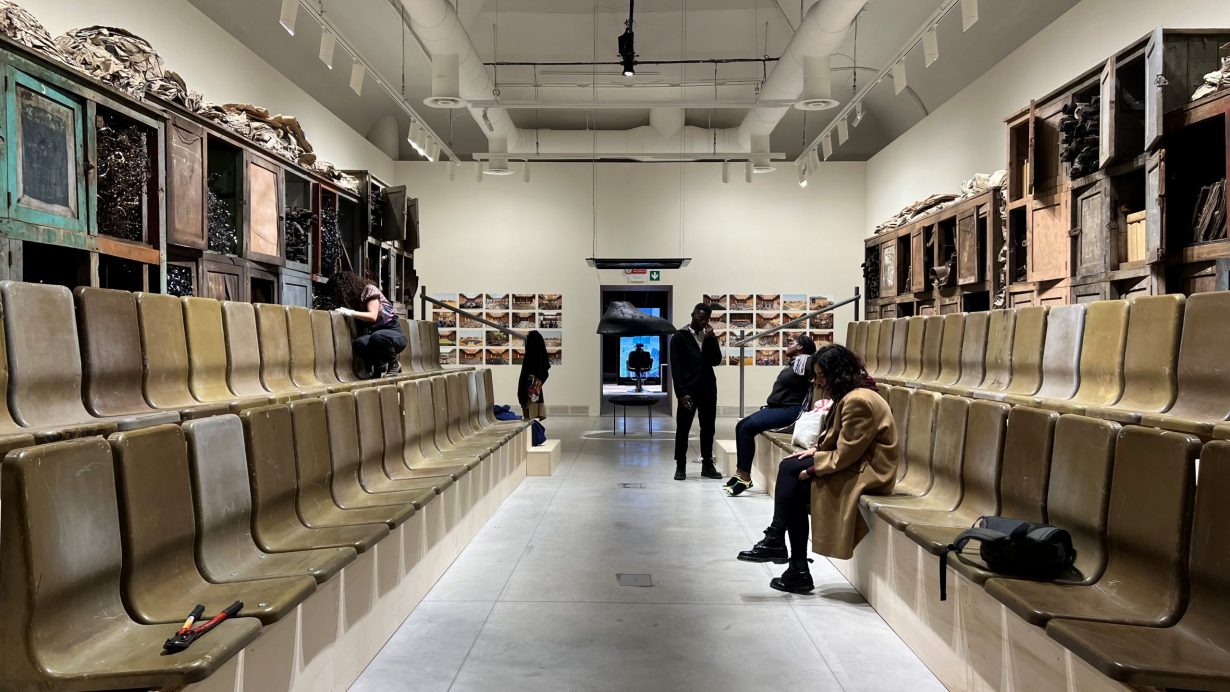
The 35th edition of Ljubljana Biennale of Graphic Arts, scheduled to open from 15 September 2023 to 14 January 2024, has revealed participating artists, locations and public programme concept.
Titled From the void came gifts of the cosmos, the Ljubljana Biennale explores contemporary art and printmaking as a tool to form cultural alliances. The exhibition – curated by Ghanaian artist Ibrahim Mahama – will focus the historical connections between post-independent Ghana and the former Yugoslavia, grounding its design on the visions of Ghana’s first president, Pan-African theorist Kwame Nkrumah, and how his ideas are realised through collaborations with practitioners in Ghana as well as the former Yugoslavia, a member of the Non-Aligned Movement.
The Biennale will unfold in multiple venues across Ljubljana including the MGLC Grad Tivoli, MGLC Švicarija, Cukrarna, Krater Creative Laboratory, PLAC and SVS Studio.
The complete list of participating artists is as follows:
Anita Afonu, Selasi Awusi Sosu, Yasmina Benabderrahmane, Virginia Chihota, Galle Winston Kofi Dawson, Nabil Djedouani, Jihan El Tahri, Beti Frim and Ines Sekač, Christian Guerematchi, Ana Govc, Helga Griffiths, Eric Gyamfi, Sonia Kacem, Soghra Khurasani, Krater, Kvadratni meter, Lalitha Lajmi, Pat Mautloa, Amina Menia, Danilo Milovanovic, Yusif Musa, llona Nemeth, Noks Collective, Nonument Group, NPR, Henry Obeng, Mohammad Omar Khalil, Krishna Reddy, Abed Al Kadiri, Bruce Onobrakpeya in dialogue with Temitayo Ogunbiyi, Nolan Oswald Denis, Thierry Oussou, Tjaša Rener, Martyna Rzepecka, Jaanus Samma, School of Mutants, (Hamedine KaneStéphane Verlet Bottéro), Mori Sikora, Janek Simon and Max Cegielski, Sanaz Sohrabi, Duba Sambolec, Tejswini Narayan Sonawane, SVS, Tracy Naa Koshie Thompson, El Warcha in dialogue with PLAC (Participatory Autonomous Zone), Ala Younis, Lara Žagar and Manca Žitnik.
Designed by Exit Frame Collective, the Biennale will also present a series of public programmes that revolves around the Akan (Ghana’s largest ethnic group) concept of ‘agyina’ (council), echoing the Biennale’s vision on void as a site of solidarity.